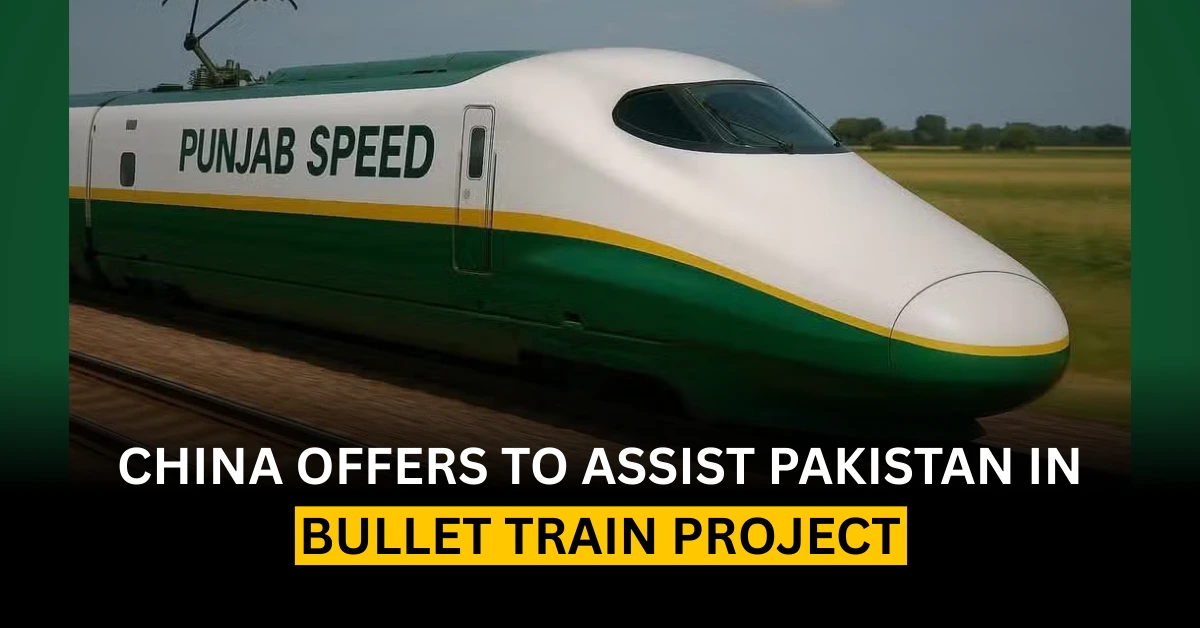China’s state-owned Guangzhou Metro Group (GMG) has signaled its readiness to help Pakistan build a bullet train project, should the government make a formal request. GMG highlighted its proven expertise in high-speed rail and metro operations, citing international projects in Hong Kong, Singapore, and Vietnam.
The offer comes at a critical time, as Pakistan evaluates options to modernize its railway infrastructure while balancing financial and technical challenges.
ML-1 Upgrade and the Bullet Train Vision
The proposed Main Line-1 (ML-1) upgrade, under the China–Pakistan Economic Corridor (CPEC), remains central to Pakistan’s railway modernization strategy. Key features include:
- Double-tracking of ~1,687 km between Karachi and Peshawar.
- Advanced signaling systems to improve safety and punctuality.
- Passenger speeds of up to 160 km/h and freight speeds of 120 km/h.
- A dedicated Lahore–Karachi bullet train corridor (~1,215 km) designed for 250 km/h, reducing travel time from 18–22 hours to just five hours.
The feasibility study for the bullet train has been completed. Authorities have set a tentative timeline of 2026 for construction, 2029 for testing, and 2030 for full operations.
Also Read:
Changan Pakistan Launches Limited Time Discounts on Alsvin and Oshan X7
Funding Shifts: From China to the ADB
Initially backed by China, the ML-1 upgrade faced setbacks when Beijing withdrew financial support, leaving Pakistan to explore alternative options.
To keep the project on track, Pakistan is negotiating a $2 billion loan with the Asian Development Bank (ADB) to finance the 500 km Karachi–Rohri section, a critical freight corridor linking key economic hubs and mineral resources such as Reko Diq copper.
This marks a significant strategic shift, as Pakistan increasingly relies on multilateral financing instead of Chinese loans—reshaping the financing model of CPEC-linked infrastructure.
Opportunities and Challenges
Opportunities
- Affordable Travel: Lahore–Karachi journey in 5 hours, with tickets projected at PKR 5,000 (economy) and PKR 10,000 (business), undercutting air travel.
- Freight Expansion: Rail freight share expected to rise from 4% to 20% by 2030, cutting logistics costs and fuel dependence.
- Job Creation: Thousands of direct and indirect jobs during the construction phase.
Challenges
- Infrastructure Gaps: Current tracks support only 60–105 km/h; sustaining 250 km/h requires massive upgrades.
- Financial Risks: High capital costs raise concerns over debt sustainability and cost overruns.
- Implementation Delays: Pakistan’s history of slow execution and funding bottlenecks could derail timelines.
Conclusion
While Guangzhou Metro Group’s offer reflects China’s continued interest in Pakistan’s transport sector, the ground reality remains cautious. The government has not formally committed to a bullet train project, focusing instead on completing the ML-1 upgrade with ADB financing.
If realized, the Lahore–Karachi bullet train could revolutionize travel and freight in Pakistan by 2030, transforming economic connectivity. Yet without consistent funding, technical readiness, and political will, the project risks remaining an aspirational vision rather than an immediate reality.



Join The Discussion